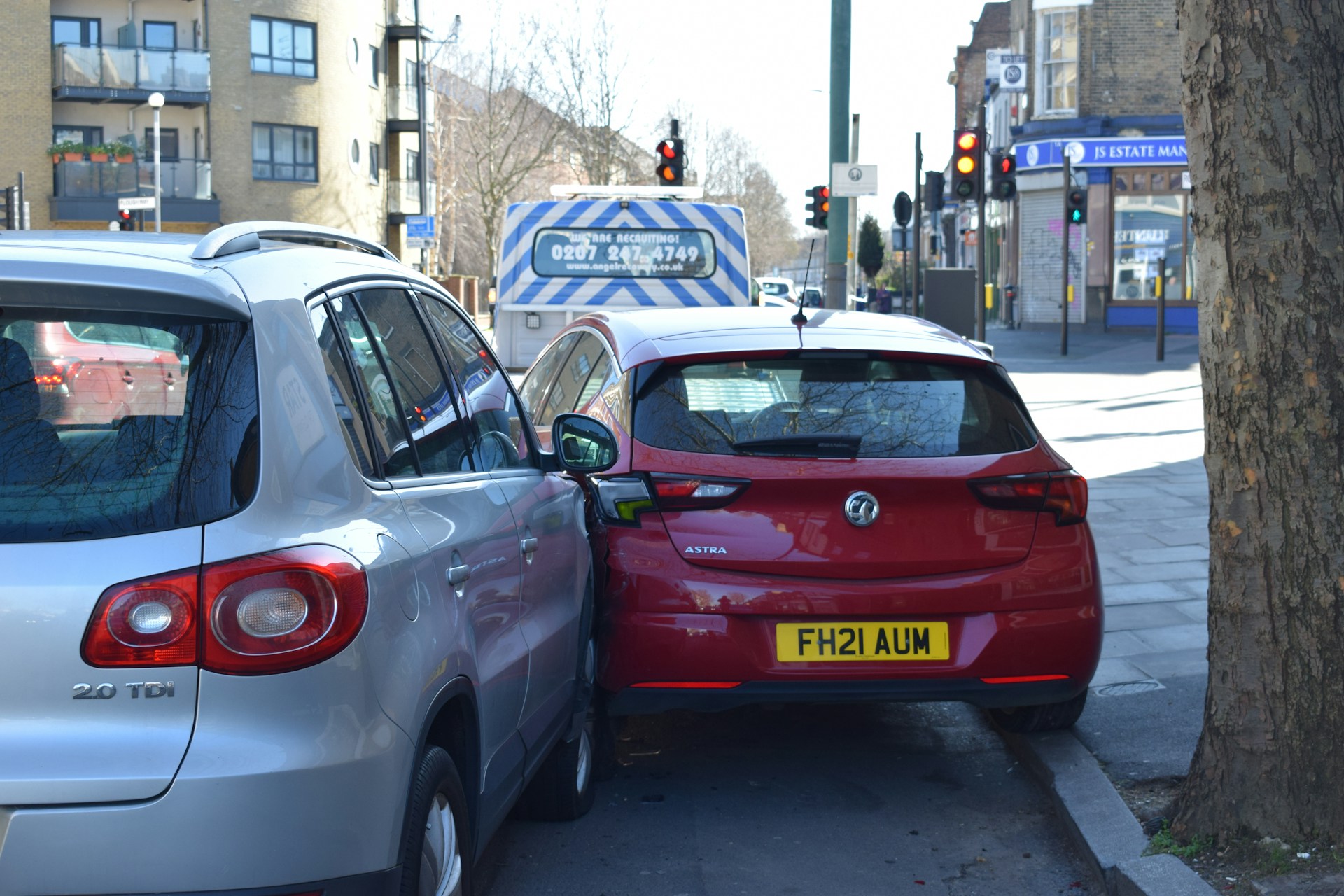When you’re exploring auto insurance options, you’ll likely come across the term “PIP.”
Personal Injury Protection (PIP) is a type of insurance that covers medical expenses and sometimes lost wages for you and your passengers in the event of a car accident. It provides coverage regardless of who is at fault. For this reason, it’s sometimes referred to as “no-fault insurance.” And it’s vital if you often drive with passengers or live in a state with no-fault insurance laws.
Read on to learn more about the specifics of this coverage, along with the key benefits it offers and how it impacts your auto insurance premiums.
The Importance of Auto Insurance
Auto insurance shields you from significant financial responsibility if you’re involved in an auto accident or if your vehicle is damaged or stolen. It also helps create a safer environment for all drivers on the road.
What is Personal Injury Protection (PIP) and How Does It Work?
As previously stated, PIP is designed to cover medical expenses and related costs when you’re involved in a car accident.
It applies no matter who caused the collision and covers medical bills, rehabilitation costs, and, in some instances, lost wages if your injuries prevent you from working. Coverage may also kick in to cover essential services, like home cleaning or childcare, if you are unable to perform these duties.
What’s the Difference Between PIP and Full Coverage?
Again, PIP specifically focuses on medical expenses and other related costs for you and your passengers after an accident.
However, full coverage typically involves a combination of different insurance types, such as liability, comprehensive, and collision coverage. Liability protects against claims from others if you are at fault, while collision covers damage to your vehicle. Comprehensive help with non-collision-related damage like theft or weather events.
PIP is more about covering immediate personal needs, whereas full coverage offers broader protection for your vehicle and potential legal responsibilities.
States That Require PIP Coverage
You must carry PIP coverage if you reside in the following states:
- Delaware
- Florida
- Hawaii
- Kansas
- Massachusetts
- Michigan
- Minnesota
- New Jersey
- New York
- North Dakota
- Oregon
- Utah
What Does PIP Cover?
Below is a closer look at what PIP covers.
Medical Expenses
As previously stated, PIP is designed to help with medical expenses resulting from a car accident. It typically covers medical bills such as hospital stays, surgery, medication and doctor visits.
If you or your passengers are injured, PIP can cover healthcare costs without needing to prove who was at fault. It can also cover expenses like ambulance fees and emergency room visits, which can be substantial after an accident.
Lost Wages
If injuries from an auto accident prevent you from working, PIP coverage might help compensate for lost wages. This feature is vital, as it provides financial support when you can’t earn a salary due to accident-related injuries.
The coverage can vary depending on your specific plan, the duration of your recovery and state requirements. To claim lost wages, you’ll likely need proof, like a doctor’s note detailing your inability to work.
Rehabilitation Costs
PIP may cover rehabilitation costs such as physical therapy, occupational therapy and other specialized treatments needed for recovery. This part of the coverage is designed to help you regain pre-accident functionality and mobility.
Coverage may include therapy sessions and necessary equipment, but specific coverage details can differ based on your individual policy and location.
Funeral Expenses
If a car accident results in a fatality, PIP can assist with funeral expenses. This could include the funeral home fee, burial expenses and other related costs.
Essential Services
As previously stated, PIP may also cover essential services that you cannot perform due to injuries from an accident. These services can include child care, housekeeping or other daily tasks you usually handle on your own.
What are the Benefits of PIP?
Here’s a quick look at the key benefits PIP offers.
Quick Payouts
In a fault state, waiting on payments from the responsible party can delay support. PIP simplifies this process by guaranteeing more immediate help, regardless of who’s at fault.
Coverage for Passengers
PIP doesn’t just protect you; it extends to your passengers, too. If family members or friends ride with you, their medical expenses could be covered in case of an accident.
Coverage Regardless of Fault
Whether or not you’re at fault, PIP pays for medical expenses and related costs without delay. This may help you avoid costly legal battles since PIP removes the fault factor.
PIP vs. MedPay
These coverages share similarities, but there are some variances to be aware of.
Key Differences
PIP and MedPay both cover medical costs after a car accident, but they have different scopes.
PIP is broader, covering medical expenses and often other costs like lost wages and essential services. It can also cover injuries sustained by others in your household, even if they were not in the car.
MedPay, on the other hand, is typically more limited. It mainly covers immediate medical expenses related to an accident.
Which One Should You Choose?
If you live in a no-fault state, PIP might be mandatory, and you’ll benefit from its broader coverage, including compensation for lost wages and other related expenses.
If you are primarily concerned with covering immediate medical bills and want a cost-effective option, MedPay can be a good fit. It is particularly useful if you already have solid health insurance coverage and can minimize overlap between policies.
How PIP Affects Your Auto Insurance Premiums
PIP can impact the price you pay for coverage, but there are ways to help make your policy more affordable.
Impact on Premium Costs
States with higher mandatory PIP limits can lead to higher premiums. Keep in mind that auto insurance companies also evaluate several factors to set premiums, including your driving history, coverages and your location.
Ways to Reduce PIP Costs
You could be overpaying for coverage with your current policy. The only way to know is to shop around with other reputable providers to see if there’s a better deal out there. Consider using Experian’s free auto insurance comparison tool to simplify the process. You can view quotes in real time and make the switch immediately with the team’s assistance. Visit the website to learn more about this free resource and Experian’s other valuable products and resources.
Filing a PIP Claim
If you need to file a claim with your provider, here’s a breakdown of what to do next.
Steps to File a Claim
- Step 1: Report the accident to your insurance provider as soon as possible. Provide accurate details about the accident and any injuries you sustained.
- Step 2: Fill out the necessary claim forms that your insurance company provides. Be sure to submit any required forms promptly.
- Step 3: Stay in contact with your insurance adjuster. They will guide you through each step and answer questions you might have.
Documentation Needed
Start with medical bills related to your accident. Documentation of lost wages is important, too, if the accident affects your ability to work. Police reports are also essential for outlining what happened during the accident.
Common Mistakes to Avoid
You want to steer clear of these mistakes when avoiding a claim:
- Delaying the reporting of your accident to the insurance company.
- Giving recorded statements to the insurance company without consulting a representative.
- Creating social media posts that could negatively impact your claim.
- Failing to create a personal record of relevant communications and expenses.
Limitations and Exclusions of PIP
It’s important to know what PIP coverage does not entail.
Situations Not Covered
- Damage to your vehicle
- Injuries sustained while committing a crime
- Expenses related to accidents outside the vehicle
Common Exclusions
- Injuries sustained in an accident while driving a vehicle not listed on your insurance policy
- Passengers who own their own insurance policies
- Costs associated with accidents caused by racing or using the vehicle for commercial purposes
Conclusion: Importance of Understanding Your Coverage
It’s vital to understand what your PIP coverage entails. Be sure to check your policy to know what’s included and excluded, as doing so can help you avoid surprises should you need to file a claim. You should also know your state’s regulations for PIP coverage and update your policy to reflect the requirements (if needed).







